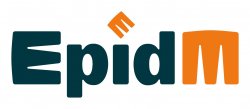Missing Data: Consequences and Solutions (WK81)
Amsterdam UMC / EpidM, Department of Epidemiology & Data Science
Archivio
22.01.2014 - 23.01.2014 Amsterdam, Netherlands
Data limite per la applicazione:December 15th 2013
Contenuti (corsi)
Although researchers do their best to avoid missing data, it is a common problem in medical and epidemiological studies. How large your missing data problem is and how to deal with it depends on how much data is missing and why your data are missing. This two-day course provides you with tools how to evaluate and handle missing data in medical and epidemiological studies with different missing data rates.
Although researchers do their best to avoid missing data, it is a common problem in medical and epidemiological studies. How large your missing data problem is and how to deal with it depends on how much data is missing and why your data are missing. This two-day course provides you with tools how to evaluate and handle missing data in medical and epidemiological studies with different missing data rates.
Obiettivi didattici, obiettivi del training
The participant is able to distinguish between different missing data mechanisms called missing completely at random (MCAR), missing at random (MAR) and missing not at random (MNAR).
The participant is able to distinguish between different missing data mechanisms called missing completely at random (MCAR), missing at random (MAR) and missing not at random (MNAR).
Pubblico target
The course is designed for everybody who wants to learn about missing data because missing data may be present in your own research and you are going to start with your data analysis or you want to learn how to judge other articles or research grants.
The course is designed for everybody who wants to learn about missing data because missing data may be present in your own research and you are going to start with your data analysis or you want to learn how to judge other articles or research grants.
Prerequisiti
The following concepts are assumed known by participants at the start of this course: - Knowledge of basic statistical tests as t-tests and regression analyses. - Knowledge of some basic SPSS commands.
The following concepts are assumed known by participants at the start of this course: - Knowledge of basic statistical tests as t-tests and regression analyses. - Knowledge of some basic SPSS commands.
Annotazioni
On the first day of the course you will receive a package containing copies of all the lecture presentations and computer exercises, assignments, and feedback on these assignments.
On the first day of the course you will receive a package containing copies of all the lecture presentations and computer exercises, assignments, and feedback on these assignments.
Informazioni ed Iscrizioni:
Register via the website
Ms. Drs Yvonne van Loon
Ricerca dell Sanita Pubblica, Sanità Pubblica (Public Health), Statistica

Tipo di titolo
Dottorato di Ricerca (PHD), Attestato di partecipazione
Dottorato di Ricerca (PHD), Attestato di partecipazione
Metodo educativo
A tempo pieno
A tempo pieno
Durata
2 Giorni
2 Giorni
Lingua
Inglese
Inglese
Punti accrediti
0,5 ECTS - Points
0,5 ECTS - Points
Costi
EUR 575,00
(If you enrol for 2 or 3 courses, you will receive a discount of 10%!)
EUR 575,00
(If you enrol for 2 or 3 courses, you will receive a discount of 10%!)
Numero di partecipanti (max.)
24
24
Contatto organizzatori
Meibergdreef 9
1105 AZ Amsterdam
Netherlands
Meibergdreef 9
1105 AZ Amsterdam
Netherlands

"Noi, Going International, siamo un’azienda che si è scelta come obiettivo di rendere acessibile la formazione a una grandissima quantità di persone, oltrepassanddo i confini geografici e sociali."







